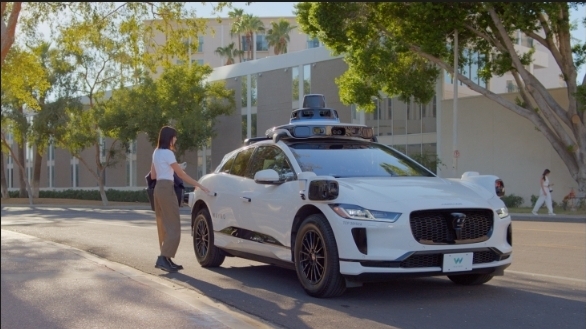
In a win for the autonomous vehicle industry, California regulators have given the green light to Cruise and Waymo to offer commercial robotaxi services across San Francisco 24 hours a day, seven days a week.
The commission voted 3-1 in support of the expansions; Commissioner Genevieve Shiroma cast the sole “no” vote.
The California Public Utilities Commission’s (CPUC) votes in favor of the AV companies come in spite of mounting opposition from residents and city agencies that have urged caution and a more incremental approach to expansion. Since AVs hit the streets of San Francisco, there have been numerous instances of vehicles malfunctioning and stopping in the middle of the street — referred to as “bricking” — blocking the flow of traffic, public transit and emergency responders.
Cruise and Waymo both offer limited paid services in San Francisco — Cruise charges for driverless rides at night, and Waymo charges for its robotaxi service throughout the city at any time of day, but with a human safety operator present. The permit extension allows the companies to expand their services significantly and with no limit on the number of robotaxis they can put on the roads.
While Cruise and Waymo have both said they would expand incrementally, and not all at once, scale isWhile Cruise and Waymo have both said they would expand incrementally, and not all at once, scale is vital for the companies’ success. Developing, testing and deploying AV tech has cost Cruise and Waymo millions of dollars. Waymo has had to pull back on operations this year after Alphabet issued a slew of layoffs in the first quarter. In July, the company shut down its self-driving trucks program to shift all its available resources to ride-hailing. If either Waymo of Cruise are to get a return on their investments, they need to grow exponentially in San Francisco and beyond.
The CPUC ended up voting to grant the permit expansions because it did not anticipate the robotaxi services to result in significant safety risks. The agency’s primary role is to promote the public interest by ensuring safe, reliable and affordable utility services. As long as Cruise and Waymo’s services meet those requirements, the CPUC doesn’t have the authority to limit them.
Many who spoke during the public comment period at the CPUC’s hearing called out the companies for not deploying robotaxis that are Americans with Disabilities Act compliant. They asked the CPUC to require clearer guidelines for companies to become ADA-compliant.
𝗦𝗲𝗺𝗮𝘀𝗼𝗰𝗶𝗮𝗹 𝗶𝘀 𝘄𝗵𝗲𝗿𝗲 𝗿𝗲𝗮𝗹 𝗽𝗲𝗼𝗽𝗹𝗲 𝗰𝗼𝗻𝗻𝗲𝗰𝘁, 𝗴𝗿𝗼𝘄, 𝗮𝗻𝗱 𝗯𝗲𝗹𝗼𝗻𝗴. We’re more than just a social platform — from jobs and blogs to events and daily chats, we bring people and ideas together in one simple, meaningful space.